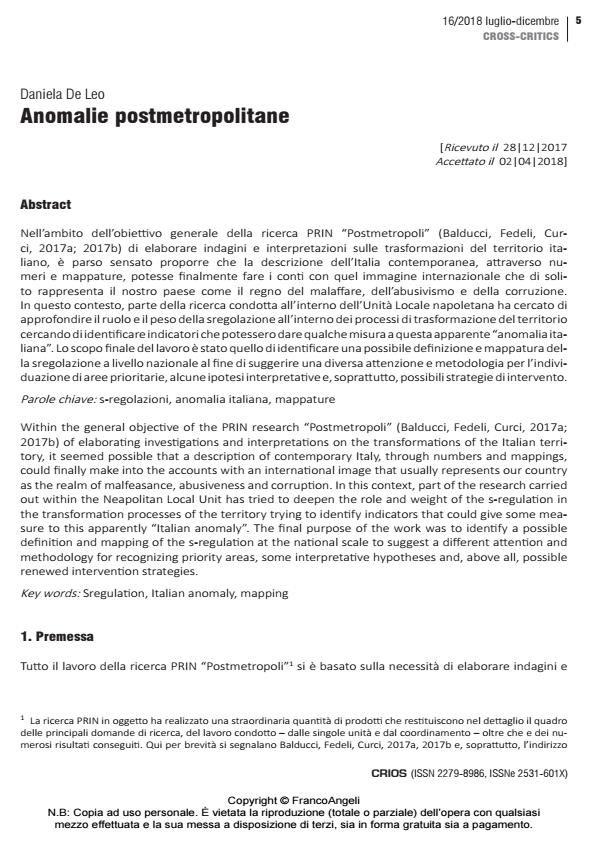Anomalie postmetropolitane
Journal title CRIOS
Author/s Daniela De Leo
Publishing Year 2018 Issue 2018/16
Language Italian Pages 16 P. 5-20 File size 986 KB
DOI 10.3280/CRIOS2018-016001
DOI is like a bar code for intellectual property: to have more infomation
click here
Below, you can see the article first page
If you want to buy this article in PDF format, you can do it, following the instructions to buy download credits

FrancoAngeli is member of Publishers International Linking Association, Inc (PILA), a not-for-profit association which run the CrossRef service enabling links to and from online scholarly content.
Within the general objective of the PRIN research "Postmetropoli" (Balducci, Fedeli, Curci, 2017a; 2017b) of elaborating investigations and interpretations on the transformations of the Italian territory, it seemed possible that a description of contemporary Italy, through numbers and mappings, could finally make into the accounts with an international image that usually represents our country as the realm of malfeasance, abusiveness and corruption. In this context, part of the research carried out within the Neapolitan Local Unit has tried to deepen the role and weight of the s-regulation in the transformation processes of the territory trying to identify indicators that could give some measure to this apparently "Italian anomaly". The final purpose of the work was to identify a possible definition and mapping of the s-regulation at the national scale to suggest a different attention and methodology for recognizing priority areas, some interpretative hypotheses and, above all, possible renewed intervention strategies.
Keywords: Sregulation, Italian anomaly, mapping
- Socio-spatial transformations at the urban fringes of Rome: Unfolding suburbanisms in Fiano Romano Lorenzo De Vidovich, in European Urban and Regional Studies /2022 pp.238
DOI: 10.1177/09697764211031620
Daniela De Leo, Anomalie postmetropolitane in "CRIOS" 16/2018, pp 5-20, DOI: 10.3280/CRIOS2018-016001